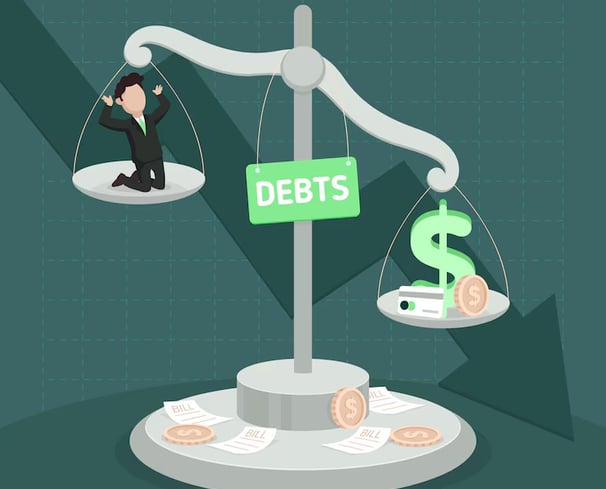What to Do When You Can't Make a Debt Payment
DEBT


Facing the reality of being unable to pay a debt can be overwhelming, but it's a situation many people encounter at some point. The key is to take proactive steps to manage the situation and avoid long-term damage to your financial health. Here’s a practical guide to navigating this challenge.
1. Assess Your Financial Situation
Start by understanding the scope of the problem.
List all your debts: Include the amount owed, due dates, and interest rates.
Review your budget: Determine how much money is coming in versus going out.
Identify shortfalls: Pinpoint where you're falling short and how much you can allocate toward payments.
Understanding the numbers gives you a clearer picture and allows you to plan effectively.
2. Communicate with Your Lender Immediately
Lenders prefer to work with borrowers who show initiative.
Contact them before missing a payment: Explain your situation honestly.
Request options: Ask about payment extensions, reduced payments, or hardship programs.
Document agreements: Ensure any new arrangements are in writing.
Many lenders offer temporary relief options, such as forbearance or deferment.
3. Prioritize Your Payments
When resources are limited, focus on essentials.
Secure necessities first: Pay for housing, utilities, and food before non-essential debts.
Rank your debts: Prioritize debts with the highest interest rates or those with severe penalties for non-payment, like mortgages or car loans.
This approach minimizes the long-term impact of missed payments.
4. Explore Alternative Income Sources
Increasing your income, even temporarily, can ease the burden.
Take on side gigs: Look for freelance work, babysitting, or delivering groceries.
Sell unused items: Declutter your home and earn money simultaneously.
Seek assistance: Research local charities or government programs for short-term help with bills.
Every extra dollar counts when dealing with financial crises.
5. Consider Debt Management Solutions
If the problem persists, explore structured options.
Credit counseling: Work with a nonprofit counselor to create a manageable repayment plan.
Debt consolidation: Combine multiple debts into a single loan with lower interest.
Bankruptcy (last resort): Understand the consequences and consult a financial advisor before pursuing this option.
Each solution has pros and cons, so research thoroughly before deciding.
6. Avoid Common Mistakes
When under financial stress, avoid actions that could worsen the situation:
Don’t ignore the problem: Late fees and penalties will only make things harder.
Avoid predatory loans: Payday or title loans can trap you in a cycle of debt.
Don’t rely on credit cards: Using credit to pay off debt often leads to more debt.
Being cautious helps you avoid falling deeper into financial trouble.
7. Focus on the Bigger Picture
Use this setback as an opportunity to improve your financial habits:
Build an emergency fund: Save a small amount regularly to create a safety net.
Learn to budget effectively: Track expenses and allocate money to priorities.
Seek financial education: Books, courses, or workshops can provide valuable insights.
The goal is not just recovery but long-term financial stability.
Final Thoughts
Missing a debt payment is challenging, but it’s not the end of the world. By staying proactive, communicating openly, and seeking solutions, you can minimize the impact and take steps toward financial recovery. Remember, the sooner you act, the easier it is to manage the situation.
Take control of your finances today—your future self will thank you!
